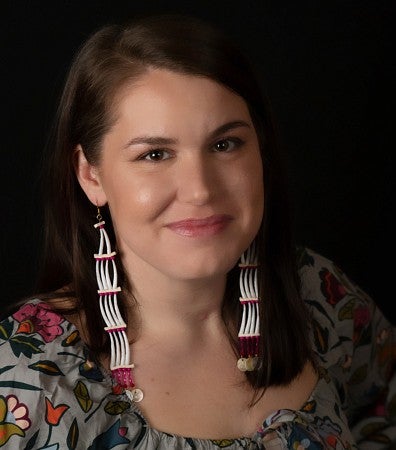
LaXa'wyam. rachel cushman nayka yakal. nayka tilixam ntsayka chinuk tilixam. ntsayka clatsop, cathlamet, wahkiakum, willapa pi lower chinuk.
My name is Rachel Cushman. I am an enrolled citizen of the Chinook Indian Nation. I am a member of Chinook’s Tribal Council and a hereditary leader of the Clatsop Tribe of Chinooks. My inherited leadership comes from my grandfather, Clatsop Chief Wasilta (Washington), a primary negotiator and signer for the Clatsop Tribe of Chinooks at the Anson Dart Treaties at Tansy Point, Oregon, in 1851.
I am deeply passionate about canoe and cultural revitalization. I am a lead puller, dancer, and singer for the Chinook Canoe Family. In 2019, I became a skipper. Read my publications (below) to learn more about these topics.
For over 20 years I have been working to protect Chinook and Indigenous waters, lands, rights, and sovereignty. Because of my deep dedication to these things, I was selected as a 2022 NDN Changemaker Fellow.
The most important thing about me is that I am a mom. I have two lovely little boys. All my hard work is for them!
Questions and Answers
What are you studying?
I am a double duck. I completed my undergraduate degree, a Bachelor of Science, majoring in Ethnic Studies from the University of Oregon in 2010.
Last year (2021), I returned to complete a doctoral degree as part of the inaugural cohort of Indigenous, Race, and Ethnic Studies (IRES) scholars. All the students in my cohort are amazing. I am so thankful for them and our graduate program faculty and staff. We have the best Director of Graduate Studies, Dr. Lynn Fujiwara.
My areas of interest include Federal Indian Policy, Federal Acknowledgement, Decolonial and Anti-colonial Studies, Indigenous Knowledge Production, Intercultural/Intertribal Relationality, and more.
This year is my second year in graduate school. I am currently working to complete the coursework required for the program. Next year, I will be completing the IRES qualifying exams, with two more years of dissertating. My projected graduation date is 2026.
I work with many faculty members across campus on various projects, however, my academic advisor is IRES Department Head, Dr. Brian Klopotek. I am honored to have Dr. Klopotek as my mentor because his scholarship and mine align. We both study the process and problems associated with federal recognition. There aren’t many scholars doing this kind of work.
There are many people on campus who have supported the work that I do, both scholarly and personal. I don’t have the ability to name them all, but I would like to give a shout-out to the aunties/sisters that have supported me most: Stephanie Tabibian, Dr. Leilani Sabzalian, Dr. Angie Morrill, Dr. Michelle Jacob, Dr. Jennifer O’Neal and Alaí Reyes-Santos. Thank you for always being there when I need you!
What impact would you like your work to have?
Like I said previously, I have been working to protect Chinook and Indigenous waters, lands, rights, and sovereignty for over 20 years.
In 2001, my tribal community won a 21-year battle for federal acknowledgment. The celebration turned into heartache 18 months later when the US government revoked our federal recognition. Twenty years later, we continue to fight for justice. I have dedicated my life and my scholarship to the fight for #ChinookJustice.
My people are experiencing genocide at the hands of the US government. We are denied access to protections (healthcare, graves protection, housing, fiscal resources, educational opportunities, and more) afforded to other tribes. Every day the disparity gap grows between tribes with acknowledgment and those without. We have all the issues of Indian Country without the resources to deal with them. The COVID pandemic exacerbated this disparity. While other tribal communities were getting the much-needed support to alleviate the impacts of the pandemic, Chinook was left drowning. Lives are being lost.
For more information about #ChinookJustice visit chinookjustice.org.
Why did you choose the University of Oregon?
Honestly, in 2005, I didn’t intend on attending the University of Oregon. I was selected as a Gates Millennium Scholar and was going to attend a school back east. However, after my tribe's loss of recognition, I had the scholarship revoked. I ended up attending the University of Oregon as a result. Of the many traumatic experiences caused by our loss of recognition, the University of Oregon has not been one.
The time between completing my undergraduate degree and the creation of the IRES graduate program was 11 years. This program was in the works for nearly that entire period. I researched other similar programs, but none existed in the Pacific Northwest. As a leader of my tribal community, fighting for justice, I could not leave. The University of Oregon was a perfect fit for achieving both my academic and service goals.
What advice do you have for future students?
Work hard. Be flexible. Do what you are passionate about. Be change makers. Most importantly, surround yourself with people that believe in you.
